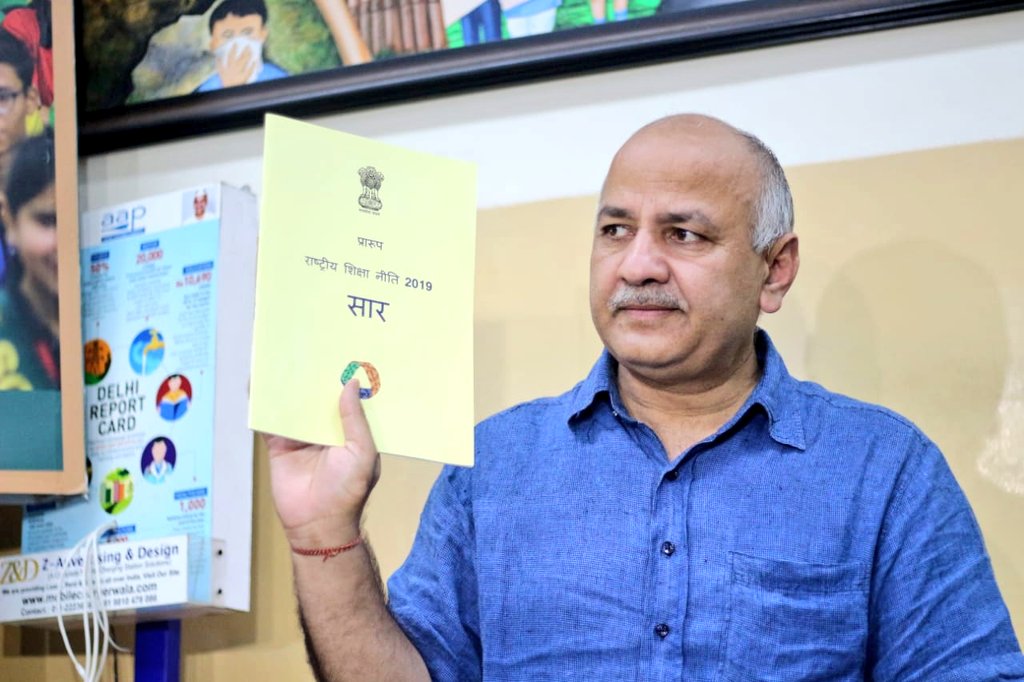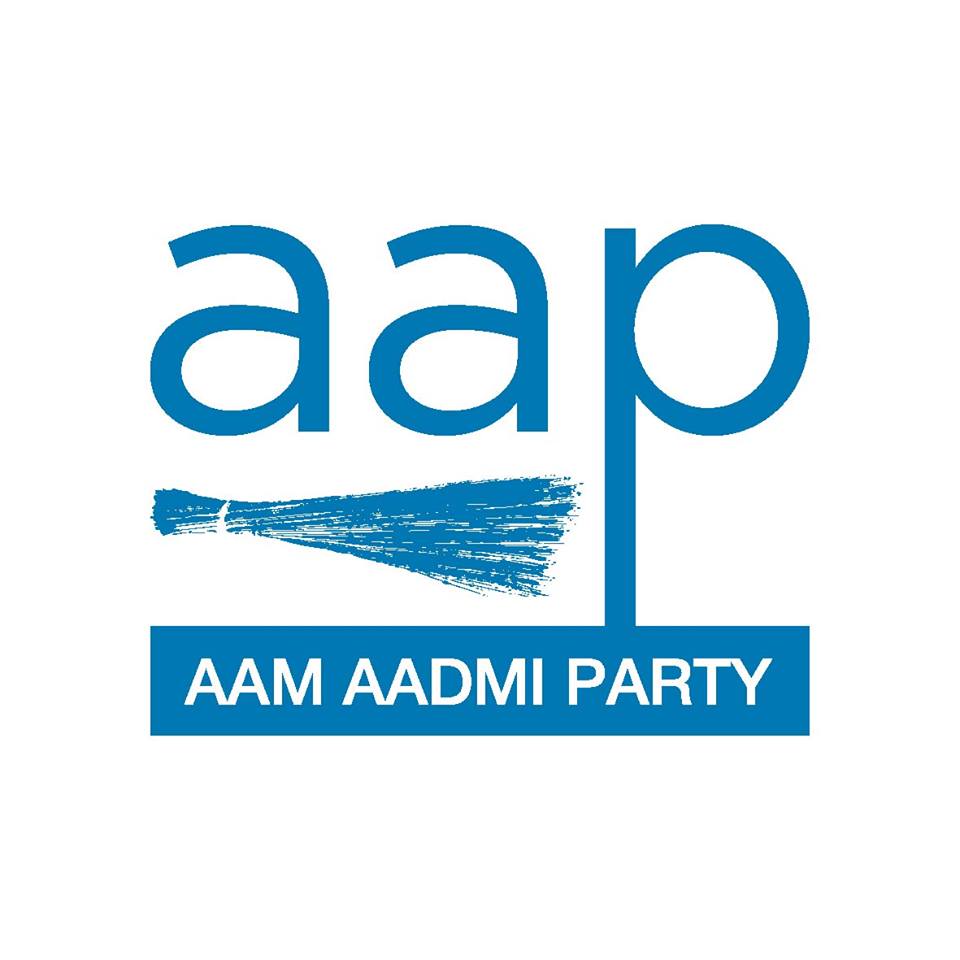
उपमुख्यमंत्री व शिक्षा मंत्री मनीष सिसोदिया ट्विटर पर, नई शिक्षा नीति पर, केंद्रीय सलाहकारी शिक्षा बोर्ड की स्पेशल मीटिंग के बाद
“आज देश की शिक्षा की सबसे बड़ी समस्या है – Highly regulated -Poorly funded. नई शिक्षा नीति में इन दोनों ही समस्याओं का कोई समाधान नहीं दिया है.
समय आ गया है कि ऐसा क़ानून बनाया जाय ताकि देश में जीडीपी का कम से कम 6% बजट शिक्षा पर रखना अनिवार्य हो.
नई शिक्षा नीति में इस बात पर कोई प्रस्ताव नहीं है कि देश के बच्चों की शिक्षा सरकार का काम है. इसके उलट कई ऐसे प्रस्ताव है जिसमें प्राइवेट शिक्षा व्यवस्था को बढ़ावा मिलेगा.
देश में सरकारी स्कूल बंद होते जा रहे हैं और जो चल रहे है उनकी गुणवत्ता पर लोगों का भरोसा कम होता जा रहा है
नई शिक्षा नीति में प्राइवेट शिक्षा बोर्ड बनाने की बात कही गई है. यह बेहद घातक क़दम होगा. शिक्षा देना सरकार का काम है और शिक्षा बोर्ड भी सरकारी ही होने चाहिए. प्राइवेट स्कूलों को अपना बोर्ड बनाने की इजाज़त देना शिक्षा के निजीकरण को और बढ़ावा देगा.
इसी तरह नई शिक्षा नीति में कालेजों को अपनी अपनी डिग्री देने का अधिकार देने की बात कही गई है. इससे फ़र्ज़ी डिग्री का धंधा खुले आम चलने लगेगा और हम चाह कर भी कुछ नहीं कर सकेंगे.
नई शिक्षा नीति में उद्देश्य चाहे जितने अच्छे लिखे लेकिन क्लास रूम में पढ़ाने का उद्देश्य परीक्षा में पास करवाना ही होता है. यह इस बात पर निर्भर नहीं करता कि नीति में क्या लिखा है. यह इस बात पर निर्भर करता है कि पिछले पाँच साल में उस पाठ से क्या क्या सवाल पेपर ने पूछे गाए हैं.
परीक्षा एवं मूल्याँकन प्रणाली में बदलाव किया जाना ज़रूरी है. केवल ‘रटने की जगह सीखने’ की बात नई शिक्षा नीति में लिख देने या कहने से कुछ बदलेगा नहीं|”
Office of Deputy Chief Minister
Govt of NCT Delhi
Sep 21, 2019
“mCentral Government should make a law to allocate 6% of GDP to Education : Manish Sisodia
Shri. Manish Sisodia, Deputy CM and Education Minister of Delhi on Saturday demanded that a law be made to allocate at least 6% of GDP to Education.
Speaking at the Special Meeting of Central Advisory Board of Education (CABE) convened by the Union HRD Ministry to discuss and finalize the National Education Policy, Shri. Sisodia further asked that the preamble to the policy should state that “Providing Good Quality Education would be the responsibility of Government through Government schools”.
While lauding few provisions of the policy, Shri. Sisodia pointed that unless there is a law which binds the Governments to allocate the fund, the policy per se will not result in the transformation of Education in India. He said that just like governments are bound by law to have ceiling on fiscal deficit or one country one tax system, similarly to implement the provision of the New Education Policy, the Governments should be bound to spend at least 6% of GDP.
He emphasized that “Quality of education provided in government schools should be at par with the private schools. Going to private schools should just be an option, not a necessity due to the lack of quality education in our government schools” Stressing on the need for providing quality education by the government in the country, he added, “Only 5% of children get access to quality education, the rest 95% have been getting average quality education. It needs to change. It is the job of the Government to provide education to all children.”
He opposed the proposal of Private Education board and called it a “dangerous idea” as these boards will promote private schools and further dilute the responsibility of government in school education.
Getting into the specifics, Shri. Sisodia said that while the idea of three years of preschool education is good but the clarity in the respective roles of Department of Woman and Child Development and Education department be laid down.
Further, he supported the recommendations on Foundational literacy and numeracy and pointed that Delhi Government has been working on it already through Chunauti and Mission Buniyaad. Similarly, idea of introducing “ethics” and “Social Emotional learning” has a model in Happiness Curriculum of Delhi Government schools. Apart from these, several curricular and pedagogical reforms recommended in the draft Policy is already operational in Delhi and he offered to share the same with Central as well as other governments.
On Higher Education, he appreciated the idea of “Research institutions” but cautioned against degree awarding autonomous colleges. He is also critical about exclusive “Multi faculty institutions”. The institutions like AIIMS, IITs, IIMs are a niche specialized institutions and their primary character should not be diluted. In fact, as we move in the era of hyper specializations, the scope for specialized institutions should not be completely closed.
He concluded his observations by saying that Indian education system has been “Highly regulated and poorly funded”. This needs to change. Thus, proposal like RSA with Prime Minister as its Chair which will add another layer of regulation needs to be revisited.


1 Comment